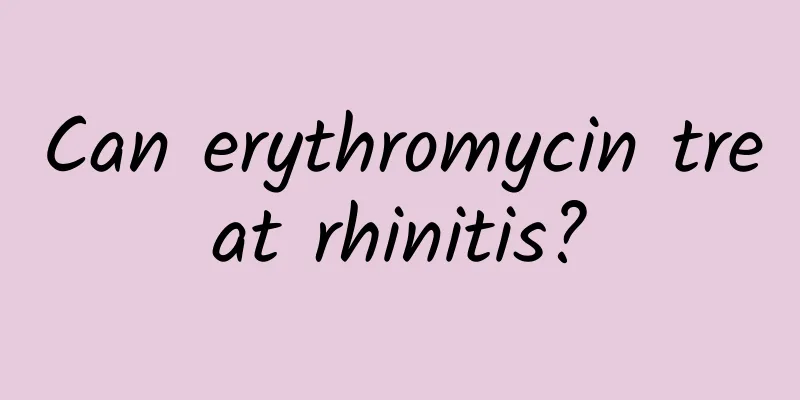Treatment of radiation-induced brain injury

|
The human brain is the most important organ of the human body. There are many nerves connected to the brain. If the nerves in the brain are damaged, certain parts of the body will lose control of the brain and become defective. Some people suffer brain damage, which has a very serious impact on the brain. People who are frequently exposed to radioactive materials will suffer from radiation brain damage. Let’s learn about the treatment of radiation-induced brain injury. "The current treatment strategy for radiation-induced brain injury is to diagnose as early as possible, delay radiotherapy, and rationally apply surgical treatment, that is, to take surgical treatment as early as possible when conservative treatment is ineffective." 1. Conventional treatment Conventional treatment mostly uses corticosteroids, free radical scavengers, heparin, warfarin, mannitol, supplemented by neurotrophic drugs, large doses of vitamins and symptomatic treatment drugs such as blood circulation and blood stasis. If conservative treatment with the above-mentioned drugs fails to improve symptoms or signs, surgical treatment should be considered as soon as possible. Glucocorticoids Glucocorticoids are the most important therapeutic drugs for radiation-induced brain injury. They can inhibit allergic reactions, improve the blood-brain barrier and maintain its complete function, improve the permeability of cerebral blood vessels, and have a stabilizing effect on cell membranes and lysosomes. It can alleviate neurological symptoms and reduce cerebral edema in the acute phase. Free radical scavenger Edaravone is a new type of free radical scavenger. At present, experimental studies at home and abroad have shown that it has the effect of reducing cerebral edema, protecting ischemic neurons, and promoting the recovery of neurological function to varying degrees. ⑴ Heparin Anticoagulants can prevent and reverse small blood vessel endothelial damage and improve microcirculation. ⑵Dehydrating agent It is suitable for patients with signs of intracranial hypertension, and is generally treated with 20% mannitol or furosemide. Especially for patients with acute radiation encephalopathy, the timely use of large amounts of dehydrating agents is very critical. If necessary, albumin and glucocorticoids (such as dexamethasone) can be added to enhance dehydration. ⑶ Neurotrophic drugs and brain cell activators ⑷ Gangliosides Early application can reduce primary and secondary brain tissue damage, alleviate cerebral edema, reduce tissue cell necrosis around the lesion, have a significant neuroprotective effect, and promote neuronal repair and recovery of neurological function. ⑸ Vasodilator drugs Treatment with the Chinese herbal compound Danshen and Buyang Huanwu Decoction can reduce delayed neuronal damage after cerebral ischemia and reduce neuronal edema in the hippocampus. The effective rate is significantly higher than that without using Chinese herbal medicine for promoting blood circulation and removing blood stasis. ⑹Vascular endothelial growth factor antibody Bevacizumab may play an important role in the treatment of radiation-induced cerebral edema by inhibiting the biological activity of human vascular endothelial growth factor. 2. Hyperbaric Oxygen Therapy Hyperbaric oxygen can improve the oxygenation capacity of tissues, promote angiogenesis, improve the perfusion of capillary beds, promote the regeneration of nerve axons and dendrites, and improve brain tissue metabolism to restore its function. 3. Surgical treatment For severe intracranial hypertension caused by radiation-induced brain injury, if the patient's physical condition permits, local resection of the radiation-induced brain injury lesion and internal decompression can be performed. Or it can be combined with external decompression after craniectomy to quickly relieve intracranial pressure, save the patient's life, and lay the foundation for further treatment. Surgical treatment is generally suitable for patients with advanced radiation-induced brain injury, especially those with formed cysts and space-occupying effects. Radiation brain damage often occurs in the temporal lobe, so it is usually sufficient to remove the temporal lobe cyst. When epilepsy is present, the epileptic focus can also be removed. The patient may be left with corresponding functional impairment. |
<<: Do you have palpitations while taking diet pills?
>>: What causes intermittent pain on the right side of the head?
Recommend
What causes dry nose?
Many people may experience symptoms of pain and i...
How to reduce severe internal heat
When the fire is more serious, the symptoms will ...
Is it good for pregnant women to drink cold water?
It is best for pregnant women not to drink cold w...
What are the causes of tinnitus and hearing loss?
We all know that ears and eyes are the two doors ...
What is ground-glass opacity in the lungs?
Once nodules appear in the human lungs, ground-gl...
Does smoking during pregnancy affect the fetus?
Pregnant women are the key protected objects afte...
What are the dangers of shaving your legs?
Some people don't have too much hair on their...
Is there anything that can clean out the intestines and eliminate stool?
If the gastrointestinal function is not good enou...
The difference between bitter chrysanthemum and chicory
We have seen that some plants have only slight di...
What are the Chinese medicines for replenishing qi?
Qi and blood are the foundation of the body. Defi...
Is it useful for pregnant women with anemia to eat red dates?
Anemia is a disease that is very harmful to the b...
What causes kidney stones?
Kidney stones are a type of kidney disease in our...
What are the side effects of using Artemisia capillaris?
Junchen is also known as white pole, velvet pole,...
Is inejaculation hereditary?
Anejaculation refers to the situation that during...
Baby's weak spleen and stomach diet therapy, parents who need it should collect it~
Lotus Seed Porridge"text-indent: 2em;"&g...









